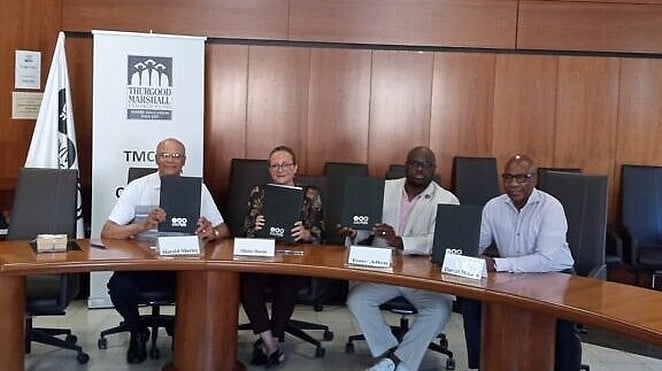“We may not be able to send our whole school. But if you send one or two students to start, you are changing their lives and changing the lives of the individuals that they interact with,” South Carolina State University president Alexander Conyers told Times of Israel.
By Beth Stern, United with Israel
Five heads of American universities that belong to the Historically Black College and Universities (HBCU) group came away so impressed from their recent trip to Israel that they will soon start student-exchange programs in the local universities and encourage the other 96 institutions who are members to do so as well, Times of Israel reporter Renee Ghert-Zand reported Thursday.
Many HBCUs focus on STEM studies (Science, Technology, Engineering, and Mathematics) and research, which is what drives the Start-Up Nation as well, although not all the chancellors had known this, the Times explained..
“Prior to our visit, I would not have identified Israel as a leading technological and innovative nation,” said Dr. Harold Martin, Jr., head of North Carolina Agricultural and Technical State University. “I leave with a very different perspective, having interacted with so many outstanding universities thriving in areas of innovation and technology that are providing outstanding graduates to leading global technology companies here in Israel and around the world.”
The purposely-honed ability of Israeli academic researchers to spin off their discoveries as for-profit companies was another important topic of discussion with senior administrators in renowned institutions such as the Hebrew University of Jerusalem, Tel Aviv University, Technion-Israeli Institute of Technology, and the agriculturally-focused Volcani Research Center, among others.
The Americans would like to emulate this kind of academic-business partnership that often exists in fields that their colleges focus on as well, such as health and medicine.
None of the chancellors had been to Israel before, and they were very impressed by their hosts’ willingness to talk freely of their experiences and innovations, according to the Times.
“Everywhere we’ve gone, everyone has been so engaging and willing to share and want to give information. To experience that type of innovation and drive has been refreshing,” said President Quinton T. Ross, Jr. of Alabama State University.
They also spoke with visiting Masters of Public Health students from Cameroon, Nigeria, and Tanzania who are currently studying at the Hebrew University of Jerusalem. Their upbeat perspective of living and learning in Israel led Ross to say he would want to send many of his students to “come and touch and feel” Israel.
“We may not be able to send our whole school,” said South Carolina State University president Alexander Conyers. “But if you send one or two students to start, you are changing their lives and changing the lives of the individuals that they interact with.”
The Israelis were excited at the possibilities as well, the report said.
“Most of our students in our study abroad programs come from the U.S., and the majority come for reasons that have to do with families, or their [Jewish] heritage and identity,” said Tel Aviv University Vice President for International Collaboration Milette Shamir, the Times reported. “I think that one of our goals as a university now is to see how we can broaden and diversify our visiting student population. We’re thrilled over the possibility of hosting these students here.”
The trip was the second of its kind organized by the Thurgood Marshall College Fund (TMCF), which supports just over half of HBCU’s 101 schools. The fund met both its stated goals – expanding student study and research in Israel and encouraging faculty exchanges, as a few memoranda of understanding were already signed during the July visit and others are in the works. Verbal agreements about staff members coming to teach in some of the HBCU schools were also reached.
TMCF President & CEO Dr. Harry L. Williams said before the visit that “HBCU students are curious and innovative, and they should have the opportunity to learn from leading Israeli researchers and experience the Start-Up Nation’s innovation ecosystem.”
The suggestion to visit came about in discussions with the American Jewish Committee’s Project Interchange, which brings international thought leaders to Israel to learn about Israeli society and build relationships with local counterparts.
The delegation also visited two Ethiopian cultural centers, the Hadassah Medical Center, and historical sites during their nine-day trip.
